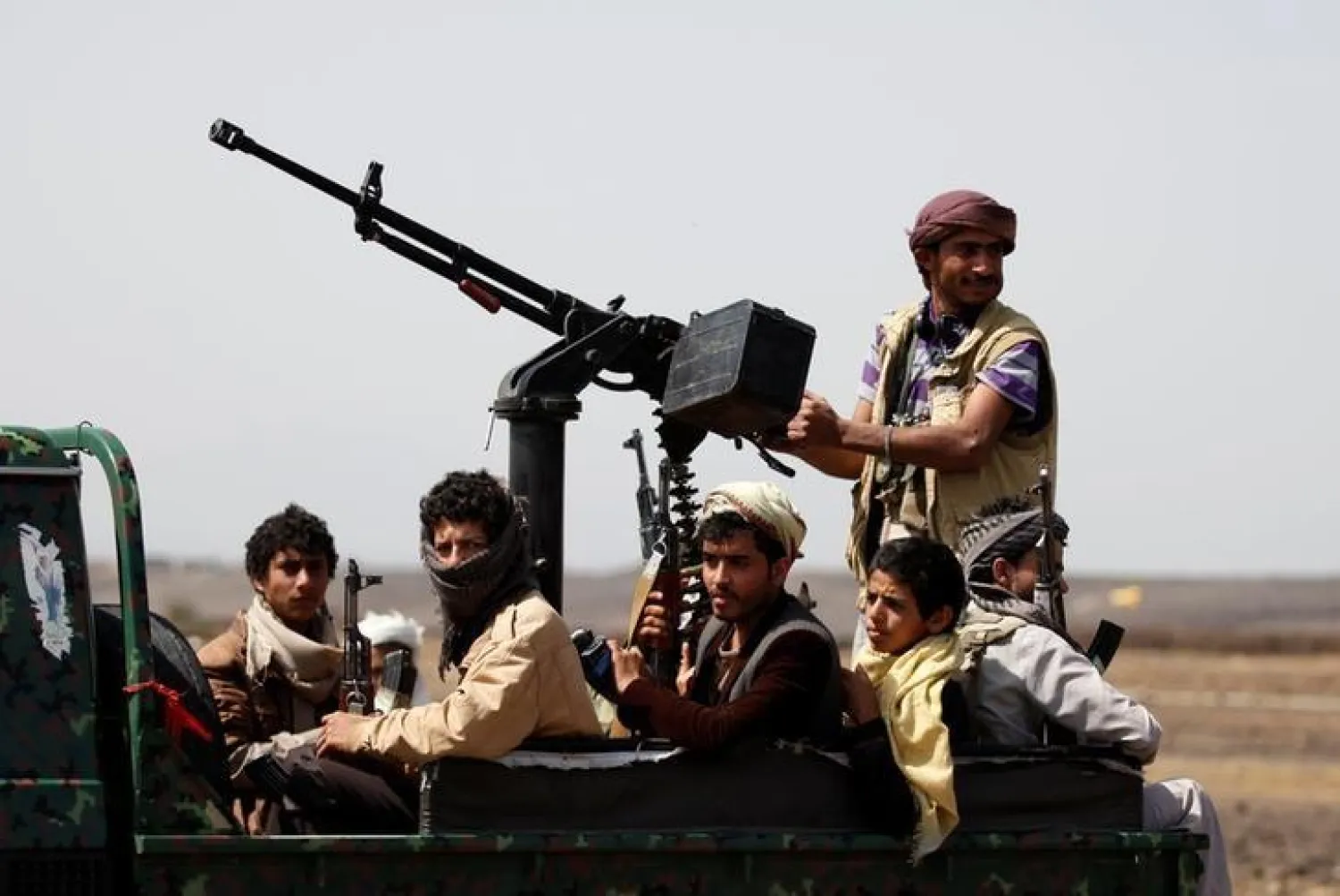Houthi militias have escalated their attacks against the tribesmen and their leaders near Sanaa and Amran governorates to seize their lands and real estate and undermine opponents.
Local sources in Sanaa told Asharq Al-Awsat that only a few weeks after the militias’ raids, killings, sieges, assaults, and kidnappings in Saraf village in the Bani Hashish district, they are again targeting residents in the vicinity of Sanaa and Amran after they refused to give up their property.
According to three tribal sources in the Sanaa countryside, Houthis killed Bakil Ayed in front of his house in Saraf village a few days ago and kidnapped his ten-year-old son.
Earlier, the militias threatened Bani Hashish dignitaries and residents to send a Houthi leader nicknamed “the butcher” in an unprecedented military campaign aimed at intimidating them after they refused more than once to give up their lands.
According to the sources, armed men on board a Houthi vehicle blocked the road of a convoy carrying Sheikh Adel Sbeih from Saraf village on his way to the town and shot at him, killing him instantly.
The militias also sent a massive military campaign that included dozens of military and armored vehicles, intending to storm into Saraf village.
A group of Saraf residents confirmed to Asharq Al-Awsat that the recent military campaign was accompanied by house raids, humiliation, assault, and kidnapping against dozens of its residents, including women and children. They also looted the contents of the raided houses.
They said the militias are still stationed on many roads and hills near the village, forcing the people to stay in their homes.
The villagers explained that the Houthi campaign came after the villagers refused to hand over their lands and allow prominent group leaders to take control of the local factories.
Yemeni human rights organizations denounced the crimes and grave violations against residents of Saraf village and demanded ending the campaign and releasing all detainees.
Shohood Organization for Human Rights said that the Houthi militias are committing unprecedented crimes and violations in Saraf village, calling for international intervention to lift the siege on them.
In a statement, the organization condemned the military campaign that targeted dozens of Al Shabikh and the Al Sarfi families in Sanaa, including women and children, and imposed a blockade on the village.
It added that it is following with great concern the militias' insistence on its prosecution of civilians without any regard for customs, traditions, laws, and international human rights laws.
The militias also demolished a few days ago the house of Saad Abdullah Whan and displaced his family in the al-Khasmin area in Shamlan without any legal bases.
Local Yemeni sources reported that insurgents attacked Beit Sael village, in the Ghoula Ajeeb area in Amran, with various medium and light weapons.
The sources indicated that the residents responded to the militias targeting their homes and burning several vehicles, while the group used mortars before tribal mediation intervened to stop the campaign.
The sources believe the clashes resulted from a Houthi leader’s attempt to loot land belonging to the sons of the tribal sheik Mohsen Saleh Sayel about a month ago.









